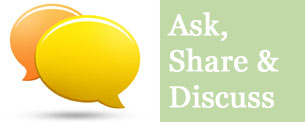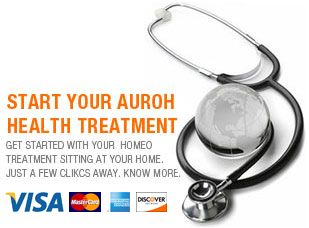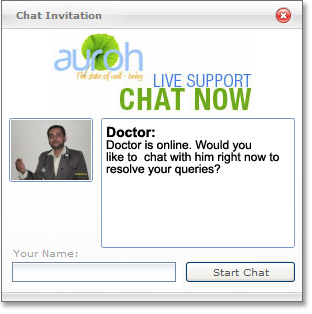|
|
||||||||||||||||||||||||||||||||||||
Disease Conditions
- Abscess
- Acne
- Addiction
- Adenoid Hypertrophy
- Allergic Rhinitis or Hay Fever
- Alopecia Areata
- Alzheimer’s Disease
- Amoebiasis
- Anxiety
- Asthma
- Backache
- Bed-Wetting-Enuresis
- Brain-Tumour
- Cataract
- Cirrhosis of Liver
- Conjunctivitis
- Constipation
- Dengue
- Depression
- Diabetes Mellitus
- Diseases of Prostate
- Eczema
- Epilepsy
- Erectile-Dysfunction
- Gallstones
- Goitre
- Gynaec
- Hepatitis
- Hepatitis-a
- Hepatitis-b
- Hepatitis-e
- Hyperthyroidism
- Hypothyroidism
- IBS - Irritable Bowel Syndrome
- Infertility
- Infertility FAQ
- Male Infertility
- Male Infertility FAQ
- Women Infertility
- Lichen Planus
- Lipoma
- Meningitis
- Menstrual-Disorders
- Migraine
- Molluscum-Contagiosum
- Nasal-Polyps
- Neoplasm
- Nephrotic Syndrome
- Neuralgia
- Osteo Arthritis
- Otitis
- Piles or Hemorrhoids
- Premature-Ejaculation
- Psoriasis
- Rheumatoid Arthritis
- Ringworm
- Schizophrenia
- Sinusitis
- Spondylitis
- Styes
- Tarsal Cyst-Chalazion
- Tonsilitis
- Typhoid
- Urinary-Tract-Infection
- Urticaria
- Vertigo
- Vitiligo
- Warts
Auroh Health Horoscope
Disease A - Z > Anxiety > Homeopathic treatment for Anxiety
Homeopathy treatment for Anxiety
|
||||||||
Anxiety is a psychological and physiological state characterized by cognitive, somatic, emotional, and behavioral components. These components combine to create an unpleasant feeling that is typically associated with uneasiness, fear, or worry
Introduction to Anxiety
Anxiety is characterized by excessive worry about everyday life events with no obvious reasons for worry. People with symptoms of anxiety, tend to always expect disaster and can't stop worrying about health, money, family, work, or school.
It most often begins in childhood or adolescence, but can begin in adulthood. It is more common in women than in men
What Are the Symptoms of Anxiety ?
Anxiety affects the way a person thinks, but the anxiety can lead to physical symptoms, as well. Symptoms of anxiety can include
- Excessive, ongoing worry and tension
- Feelings of apprehension or dread
- Restlessness or a feeling of being "edgy"
- Irritability
- Muscle tension
- Headaches
- Sweating
- Difficulty concentrating
- Nausea
- The need to go to the bathroom frequently
- Tiredness
- Insomnia
- Trembling
- Being easily startled
- Sadness and depression
- Decrease in libido
- Increased blood pressure
What Causes anxiety
The exact cause of anxiety includes genetics, brain chemistry and environmental stresses
- Genetics: Some research suggests that family history plays a part in increasing the likelihood that a person will develop generalized anxiety disorder (GAD). This means that the tendency to develop GAD may be passed on in families
- Brain chemistry: GAD has been associated with abnormal levels of certain neurotransmitters in the brain. Neurotransmitters are special chemical messengers that help move information from nerve cell to nerve cell. If the neurotransmitters are out of balance, messages cannot get through the brain properly. This can alter the way the brain reacts in certain situations, leading to anxiety
- Environmental factors: Trauma and stressful events, such as abuse, the death of a loved one, divorce, changing jobs or schools, may lead to GAD. GAD also may become worse during periods of stress. The use of and withdrawal from addictive substances, including alcohol, caffeine, and nicotine, can also worsen anxiety
In addition, people with GAD often have other anxiety disorders (such as panic disorder, obsessive-compulsive disorder, and phobias), suffer from depression, and/or abuse drugs or alcohol.
Types of anxiety disorders
There are six major types of anxiety disorders, each with their own distinct symptom profile: generalized anxiety disorder, obsessive-compulsive disorder, panic disorder, phobia, post-traumatic stress disorder, and social anxiety disorder
Generalized anxiety disorder
If constant worries and fears distract you from your day-to-day activities or you’re troubled by a persistent feeling that something bad is going to happen, you may be suffering from generalized anxiety disorder (GAD). People with GAD are chronic worrywarts who feel anxious nearly all of the time, though they may not even know why. Anxiety related to GAD often shows up as physical symptoms like insomnia, stomach upset, restlessness, and fatigue
Obsessive-compulsive disorder

Obsessive-compulsive disorder (OCD) is characterized by unwanted thoughts or behaviors that seem impossible to stop or control. If you have OCD, you may be troubled by obsessions, such as a recurring worry that you forgot to turn off the oven or that you might hurt someone. You may also suffer from uncontrollable compulsions, such as washing your hands over and over
Panic disorder
Panic disorder is characterized by repeated, unexpected panic attacks, as well as fear of experiencing another episode. Panic disorder may also be accompanied by agoraphobia, which is a fear of being in places where escape or help would be difficult in the event of a panic attack. If you have agoraphobia, you are likely to avoid public places such as shopping malls or confined spaces such as an airplane
Phobia

A phobia is an unrealistic or exaggerated fear of a specific object, activity, or situation that in reality presents little to no danger. Common phobias include fear of animals such as snakes and spiders, fear of flying, and fear of heights. In the case of a severe phobia, you might go to extreme lengths to avoid the thing you fear. Unfortunately, avoidance only strengthens the phobia
Post-traumatic stress disorder
Post-traumatic stress disorder (PTSD) is an anxiety disorder that can occur in the aftermath of a traumatic or life-threatening event. Symptoms of PTSD include flashbacks or nightmares about what happened, hyper vigilance, startling easily, withdrawing from others, and avoiding situations that remind you of the event
Social anxiety disorder

If you have a debilitating fear of being seen negatively by others and humiliated in public, you may have social anxiety disorder, also known as social phobia. Social anxiety disorder can be thought of as extreme shyness. In severe cases, social situations are avoided altogether. Performance anxiety (better known as stage fright) is the most common type of social phobia
Treatment of Anxiety Neurosis

There are a variety of different treatments for anxiety neurosis and treatment will be dependent on a variety of different factors
Some common treatments include
- Cognitive and behavior Therapy - This is a common treatment for people with various degrees of situational anxiety, fear anxiety, etc. It involves two different types of therapies cognitive therapy and behavioral therapy. It works to restructure your thinking patterns and behaviors which trigger your attacks.
- Exposure Therapy - This type of therapy is used to expose patients to the physical sensations of panic in a safe environment. It forces you to feel the feelings of anxiety and panic and works to teach your healthier ways of coping with these feelings
- Medication - Benzodiazepines and antidepressants are often prescribed for people suffering with panic attacks.
Complementary treatments for anxiety disorders
Several new anxiety treatments are showing promise as complements to both therapy and medication. In mild anxiety disorder cases, these treatments may provide sufficient relief on their own
- Exercise – Exercise is a natural stress buster and anxiety reliever. Research shows that as little as 30 minutes of exercise three to five times a week can provide significant anxiety relief. To achieve the maximum benefit, aim for at least an hour of aerobic exercise on most days
- Relaxation techniques – When practiced regularly, relaxation techniques such as mindfulness meditation, progressive muscle relaxation, controlled breathing, and visualization can reduce anxiety and increase feelings of relaxation and emotional well-being
- Biofeedback – Using sensors that measure specific physiological functions—such as heart rate, breathing, and muscle tension—biofeedback teaches you to recognize the body’s anxiety response and learn how to control them using relaxation techniques
- Hypnosis – Hypnosis is sometimes used in combination with cognitive-behavioral therapy for anxiety. While you’re in a state of deep relaxation, the hypnotherapist uses different therapeutic techniques to help you face your fears and look at them in new ways
What is The Best Treatment for Anxiety ?
There are many ways to treat anxiety and depression, you need to monitor yourself closely and learn your own condition more, then decide if the recommended treatment works for you or not
- Medication – Use of anti-anxiety and anti-depressant requires prescription from doctor, and only under guidance and monitor from doctor or qualified psychiatrist, the patient will receive the correct dosage, minimize the danger of side effects
- Herbal – This is considered an alternative treatment for anxiety. However, the Chinese and native people had used them for thousands of years to cure the problems, and studies find that they are as effective as prescription medicine without the side effect, and if you don’t want side effect or prescription medication doesn’t work for you, you can try Herbal based medicine
- Relaxation Exercise – Taiji and QiGong are very good relaxation exercises, it can help to relax your mind and body, and restore them to a healthier stat, balance up your body chemical and reduce your mind anxiety and stop feeding anxious sense to the body
- Regular Exercise – 30 Minutes of regular exercise every day will reduce the panic attack, and shorten the duration during panic attacks, and eventually eliminate anxiety. When doing exercise, your mind will be distracted from thinking something anxious, and your body will be healthier, less symptoms of anxiety will occur. That’s why exercise is vital in every treatment plan for anxiety.
- Psychological Treatment for Anxiety – One of the most common and effective anxiety treatments is Cognitive Behavioral Therapy (CBT), and this method can be used with drugs or without drug. However, herbal based anxiety relief medicine is highly recommended.
- Diaphragmatic or Deep Breathing Exercise – Using special deep breathing technique to help relax the mind and body, increase the oxygen level and reduce chemical imbalance in the body in the body. This kind of techniques has proven itself to be effective for most sufferers to reduce duration and frequency of panic attacks
- Complementary Therapies – These are not exactly treatment for anxiety, but rather to restore health and strength of the body. Namely, Messages, Shiatsu, Tuna (Chinese acupressure treatment), Guava, Acupuncture and Aromatherapy. Once or twice a week would help to relax the body and mind
Why homeopathy for Anxiety Neurosis ?
- It works amazingly
- It is based on the deeper understanding of the patients mind set, his stress coping system and genetic tendency
- It is free from side effects
- It is not habit forming
- It can help you reduce or stop the need for conventional anti-anxiety or anti-depression medicines
- It does not lead to drug-dependency
Conclusion
Before you start any kind of treatment for anxiety, just remember this: You must be confident with any kind of treatment you are going through, and you need to build up your self-confidence before you actually believe you will recover. The belief in yourself, the program and medication is vital, you will not persist to see the result if you don’t believe what you do!
| talk to our doctors right now |  |
|
| consult our experts | ||
 |
leave your number we will call you back |
|
| start auroh health treatment |
Your doctor is just a click away |
Treatment |










